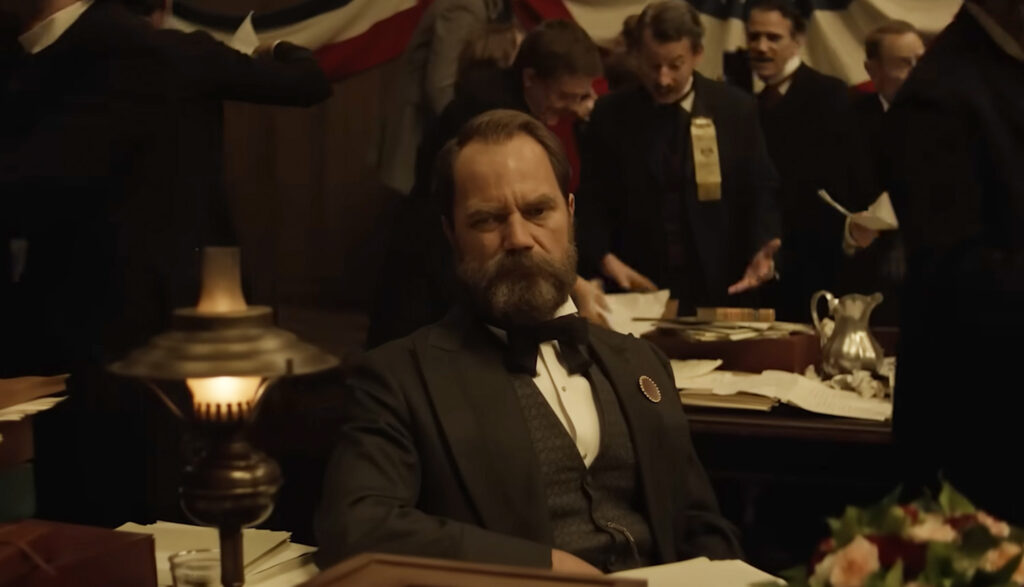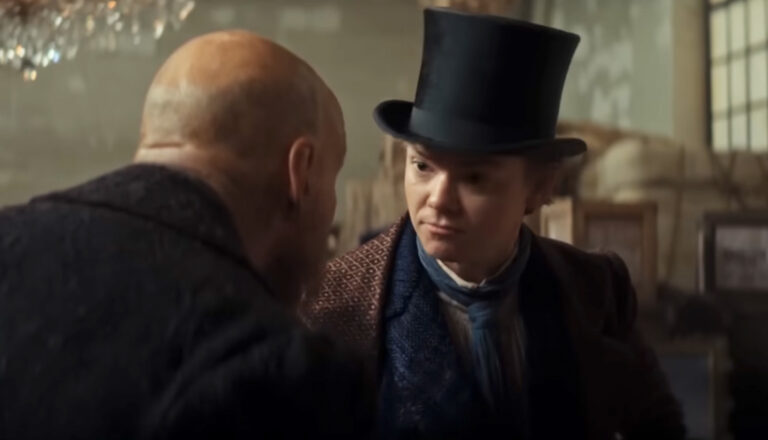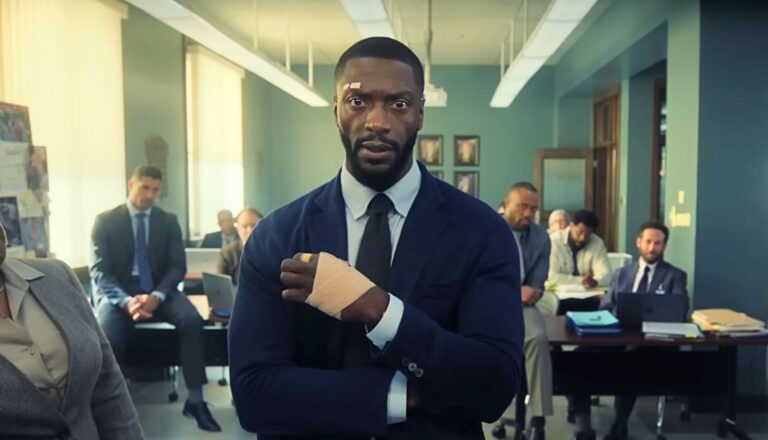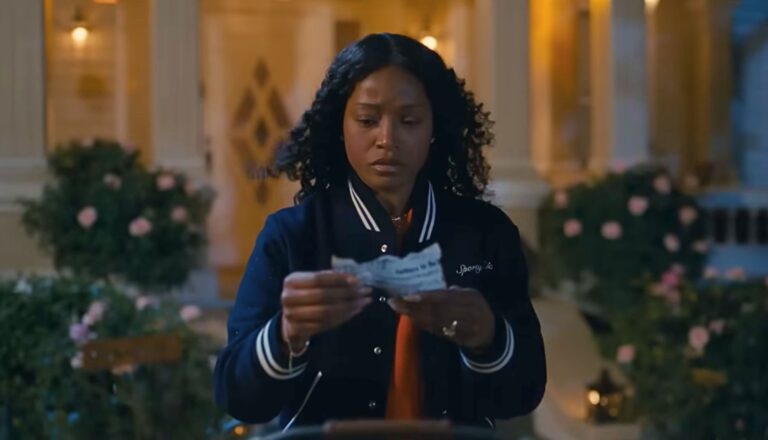
Unfamiliar
Filled with gritty violence and foul language, when it comes to this German spy drama, “unfamiliar” is how most viewers should stay.

When we hear the name “Garfield,” most of us think of a lasagna-loving cat, not the 20th president of the United States.
And perhaps that’s understandable. We don’t spend a lot of time in school studying the Gilded Age, when James A. Garfield was doing his thing. The era was dominated by big business, and government was a bit of an afterthought. Those late 1800s presidents had some impressive facial hair, but their politics were—for most of us non-historians—rather forgettable.
Even if Garfield wanted to rock the boat (and many think he would’ve), the guy didn’t have much time to leave a lasting political legacy. He walked into the White House in March 1881 and left it in September that same year—whisked away in a cushioned railway car to the cooler confines of New Jersey, hoping the crisp air would help him heal from an assassination attempt.
The air did not help. Garfield died Sept. 19, 1881. His assassin, Charles Guiteau, was hanged about eight months later.
It’s a shame few people really know much about James Garfield. Netflix aims to change that, taking some liberties along the way.
Crazy for Politics
Death by Lightning picks up Garfield’s story—and that of his eventual killer, Guiteau—in 1880. The two men offer a nice study in contrasts. One was a good man on the cusp of greatness, according to Netflix. The other was a man who wanted to be great, but he was, alas, merely insane.
James Garfield never wanted to be president. Sure, the Civil War vet cut a nice lane for himself as a sometime politician: He’d just been elected to the Senate that year. But his real passions rested in his Ohio farm and tight-knit family. He had planned to skip the upcoming Republican Convention in Chicago. He had no interest in its shady backroom dealings and bare-knuckle maneuverings. He’d rather just build a dining table back home.
But when fellow Republican John Sherman decides to run for president, he asks his friend and political ally, James, to give Sherman’s nominating speech on the convention floor. How could James say no?
Charles Guiteau is in Chicago during the convention, living on money he stole from his sister and trying to raise more to start a newspaper. But when he sees Garfield—shakes his hand, even—Charles changes tacks. He’s going to help put Garfield in the White House. He’s sure that the new president will shower honors on him in the wake of his help. Perhaps a consulship in Paris. Yeah, that’s it. Paris.
And if the president fails to follow through? Well, he’ll need to answer to that. In blood.
Fail to the Chief
Death by Lightning is a four-part miniseries based on Candice Millard’s book, Destiny of the Republic. The show is loaded with an all-star cast (including Emmy winner Matthew Macfadyen as Guiteau and Oscar nominee Michael Shannon as Garfield), and it does a fine job of bringing two fascinating but forgotten men to the forefront.
But for all the stuff this Netflix show gets right, the book is better.
Blame the 21st century’s penchant for sticking problematic content where none is needed. Or wanted. Or even makes sense.
Certainly, some content is unavoidable. We are talking about a real-world assassination, after all. Some bloody flashbacks to Garfield’s Civil War service might even be justified.
But the show’s sex and nudity (while not pervasive) feel utterly gratuitous here. Death by Lightning also finds ways to stuff in some incredibly harsh language, sometimes resorting to flash-forwards as to not make the f-words feel so out of place.
And that’s a shame.
Full confession: I’ve read my fair share of presidential biographies, and Millard’s Destiny of the Republic is one of the best. It introduces its readers to a largely forgotten U.S. president whose legacy, without question, deserves a better fate. Netflix’s adaptation makes for compelling viewing, and it easily could’ve been a show that parents might have watched alongside their older teens.
As it is, though, Netflix’s desire to push a PG-13 story into R-rated territory makes Death by Lightning worth passing over. Perhaps for a plate of lasagna.
(Editor’s Note: Plugged In is rarely able to watch every episode of a given series for review. As such, there’s always a chance that you might see a problem that we didn’t. If you notice content that you feel should be included in our review, send us an email at letters@pluggedin.com, or contact us via Facebook or Instagram, and be sure to let us know the episode number, title and season so that we can check it out.)
James Garfield is called away from his farm to the Republican Convention in Chicago. His task: to introduce his political ally, John Sherman, to the delegates in fine fashion. Even though Sherman realizes he has no realistic shot at winning, he hopes to push the party platform toward reform—and away from the corruption-addled ways of Ulysses S. Grant and his wily operative, Roscoe Conkling. Meanwhile, Charles Guiteau is released from prison and is taken in by his beloved sister, Francis, and her skeptical husband.
Garfield is portrayed as a solid family man with a quixotic love of farming. (When one of his children chides him on some of his crazy ambitions for irrigation, he says, “Great wisdom has not been without a touch of madness.”) In Chicago, he allows an apparently homeless Civil War vet to sleep in his bed while he works on his speech. And during the speech, James reminds the delegates of the Republican party’s lofty ideals and history—invoking God as he does so. (The real James Garfield was deeply religious, actually serving as a minister for the Disciples of Christ for a time.)
Our picture of Guiteau is significantly different. We hear about his relationship to the Oneida Community, described as a “free love colony” and “sex cult.” In flashback, Charles stands in a field as a man and woman have noisy sex at some remove, the woman’s breasts exposed to the camera.
We also see flashbacks to Garfield’s Civil War days. Someone mentions that he served with distinction at the Battle of Chickamauga (referred to here as the “River of Death”), and Garfield flashes back to a battlefield—the camera zooming in on the eye of a dead animal as a fly alights on the beast. Another flashback features a soldier beside Garfield getting bloodily shot in the head.
Guiteau nearly strikes his sister with an axe by accident. He’s thrown out of a bank after the banker recognizes him from a confrontation years before. “You’re the gentleman that threw the paperweight,” he reminds Guiteau, pointing to the damage the paperweight caused. In another flashback, Guiteau is beaten and kicked by several police officers—after he was found guilty on false pretenses and tried to evade arrest. We hear hints that Guiteau’s father beat Guiteau as a child. In a flash-forward to 1969, workers discover a jar holding a human brain. Conkling swears to “gut” a political rival.
A politician urinates in a bathroom. Characters drink whiskey, port and wine. Someone smokes a cigar. Someone steals (and we hear references of past thievery). We hear the f-word four times, the s-word three times and a passel of other profanities, including “b–ch,” “b–tard,” “h—” and “tw-t.” Someone makes a crude reference to testicles. God’s name is misused twice, once with the word “d–n,” and Jesus’ name is abused thrice.
Charles tells his brother-in-law, George, that he just wants to help Francis. “Charles, there’s only one way this story ever ends for men like you,” George tells him darkly. “And we both know there’s only one thing you can do for your sister.” It’s likely the unstated “thing” would be for Charles to simply leave, but it could be taken as a suggestion that Charles should kill himself.

Paul Asay has been part of the Plugged In staff since 2007, watching and reviewing roughly 15 quintillion movies and television shows. He’s written for a number of other publications, too, including Time, The Washington Post and Christianity Today. The author of several books, Paul loves to find spirituality in unexpected places, including popular entertainment, and he loves all things superhero. His vices include James Bond films, Mountain Dew and terrible B-grade movies. He’s married, has two children and a neurotic dog, runs marathons on occasion and hopes to someday own his own tuxedo. Feel free to follow him on Twitter @AsayPaul.

Filled with gritty violence and foul language, when it comes to this German spy drama, “unfamiliar” is how most viewers should stay.

Oliver Twist’s Artful Dodger isn’t 13 anymore: He’s an adult. And being an adult comes with more grown-up problems.

Though it’s compelling, the content concerns in Prime Video’s ‘Cross’ might be enough to cross it off your watch list.

‘The ‘Burbs’ is Peacock’s attempt to adapt the 1989 movie of the same name. But a fresh coat of paint doesn’t hide the content issues.